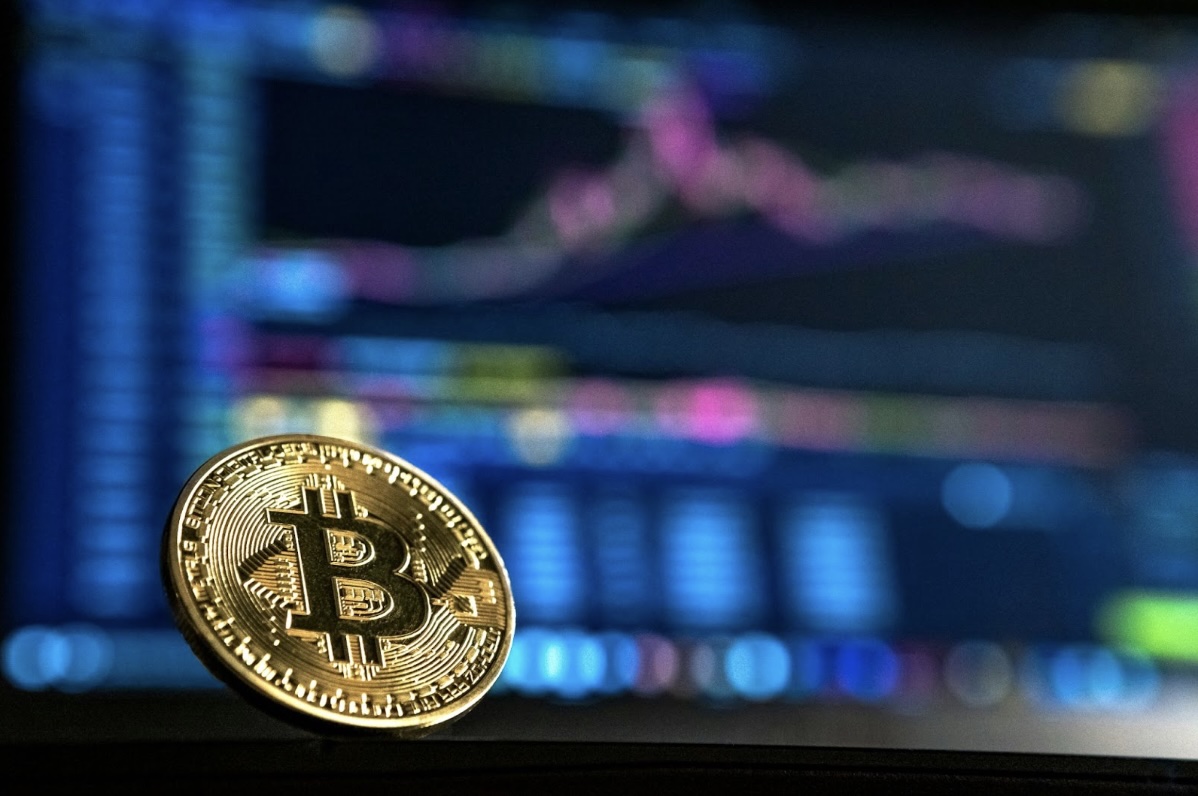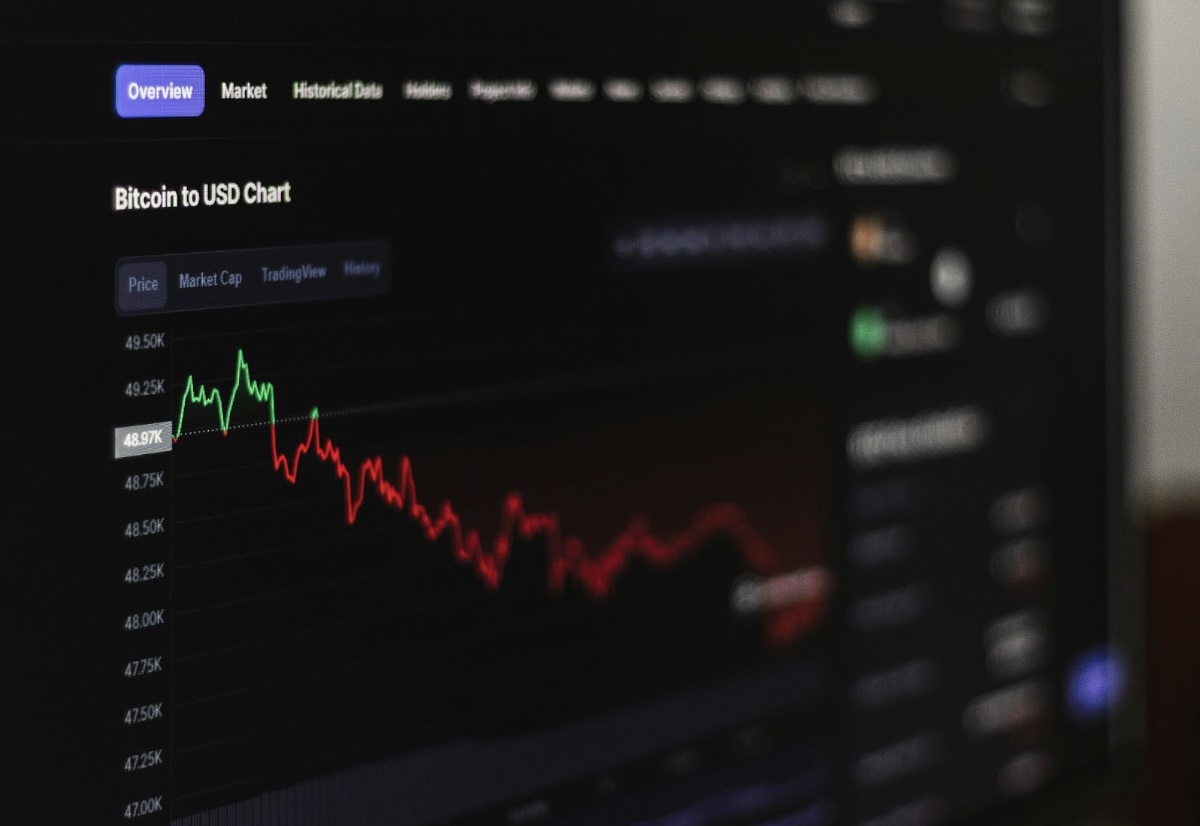Sep 03 (News On Japan) - Bitcoin has gained widespread recognition as a digital asset, attracting both seasoned and novice investors with its promise of high returns.

As cryptocurrency becomes more mainstream, Bitcoin remains the flagship digital currency that many are eager to invest in. However, beneath the allure of potential profits, there are significant risks that come with purchasing Bitcoin.
As interest in Bitcoin grows, more people are looking to diversify their portfolios and join the world of cryptocurrency. It’s easy to get caught up in the excitement of the market’s rapid growth, but it’s crucial to approach Bitcoin investments with caution. Understanding the downsides is essential for anyone looking to safeguard their finances.
Before you rush to buy Bitcoin, it’s important to fully grasp its inherent risks. From extreme volatility to security concerns, the downsides of investing in Bitcoin can significantly impact your financial decisions. Whether you buy crypto with a debit card or through other methods, knowing these risks can help you make a more informed choice.
Volatility and Price Fluctuations
One of the most notable risks of buying Bitcoin is its extreme price volatility. Unlike traditional assets like stocks, Bitcoin can experience massive price swings in short periods. For example, in 2021, Bitcoin's price soared to nearly $64,000 before plummeting by more than 50% in just a few months. This volatility means that investors can face significant financial losses if they do not carefully time their investments.
The psychological challenge of such fluctuations is another concern. Watching your investment's value drop dramatically can cause panic, leading to impulsive decisions like selling at a loss. Many inexperienced investors fall into this trap, selling when the market is down and missing out on potential recoveries. To invest successfully in Bitcoin, you need a high tolerance for risk and the ability to remain calm during market downturns.
For long-term investors, volatility can be both an opportunity and a challenge. While some see price dips as buying opportunities, others might find the uncertainty too stressful. Bitcoin’s potential for high returns is undeniable, but so is the risk of substantial losses.
Lack of Regulation and Security Concerns
Bitcoin operates in a largely unregulated environment, which adds to its risk. While the decentralized nature of Bitcoin is attractive to some, it means there's less protection for investors. Regulatory uncertainty is a significant concern, as governments worldwide are still determining how to handle cryptocurrencies. In some countries, authorities have introduced strict regulations or outright bans, which can drastically affect Bitcoin's value.
Security is another major issue in the cryptocurrency space. Hacks, scams, and fraud are prevalent, and many investors have lost funds due to poorly secured exchanges or phishing attacks. One of the most notorious incidents was the Mt. Gox hack in 2014, where around 850,000 Bitcoins were stolen, leading to the collapse of one of the largest exchanges at the time. While security measures have improved, risks still exist, especially for those who don't use protective measures like hardware wallets.
Legal risks also come into play, as Bitcoin's status varies from one country to another. In some regions, Bitcoin trading is illegal, while others impose heavy taxes on cryptocurrency transactions. This lack of legal clarity adds another layer of risk for investors.
Limited Use Cases and Adoption Challenges
Despite its growing popularity, Bitcoin's use as a currency remains limited. Few businesses and retailers accept Bitcoin for everyday transactions, making it less practical as a replacement for traditional currency. This limited adoption reduces its utility for those who wish to use it for regular purchases.
Moreover, Bitcoin faces competition from other cryptocurrencies, often referred to as altcoins. Some of these alternatives, like Ethereum, offer more advanced features and better scalability, making them more attractive for specific applications. Bitcoin's slower transaction times and higher fees can be a deterrent, especially during periods of high network congestion.
Scalability has been a long-standing issue for Bitcoin. The network struggles to handle a large number of transactions simultaneously, leading to delays and increased transaction costs. Although solutions like the Lightning Network aim to address this, they have yet to achieve widespread adoption. Until Bitcoin overcomes these challenges, its real-world usability will remain restricted.
Environmental Impact and Sustainability
Bitcoin's environmental impact is a growing concern. The process of Bitcoin mining, which involves validating transactions and generating new coins, requires enormous amounts of energy. In fact, Bitcoin’s energy consumption is comparable to that of entire countries like Argentina.
This high energy use has sparked criticism from environmentalists and policymakers, who argue that Bitcoin’s carbon footprint is unsustainable. The energy-intensive process results from Bitcoin’s proof-of-work mechanism, where miners solve complex mathematical problems to validate transactions. While some mining operations have switched to renewable energy, the overall environmental cost remains high.
For investors, Bitcoin's environmental impact may have long-term consequences. As governments introduce regulations to address climate change, Bitcoin mining could face restrictions, potentially affecting its value and demand.
Risk of Technological Changes and Obsolescence
The rapidly evolving cryptocurrency landscape poses another risk for Bitcoin investors. Although Bitcoin was the first cryptocurrency, newer projects with more advanced technology have emerged, potentially threatening its dominance. Innovations such as Ethereum, Solana, and Cardano offer features like smart contracts and faster transaction speeds, which Bitcoin lacks.
Bitcoin has also experienced "hard forks," where disagreements within the community have led to the creation of new cryptocurrencies like Bitcoin Cash. These splits create uncertainty and can impact investor confidence. As blockchain technology continues to evolve, there's a possibility that Bitcoin could be overshadowed by more efficient alternatives.
The risk of becoming outdated is a genuine concern. If Bitcoin fails to adapt or improve its technology, it might lose its status as the leading cryptocurrency. Investors need to be aware that Bitcoin’s dominance is not guaranteed in an ever-changing digital landscape.
Emotional and Psychological Impact
Investing in Bitcoin can be emotionally draining, especially for those unaccustomed to its volatility. The fear of missing out (FOMO) often drives investors to buy when prices are high, only to panic and sell when prices drop. This cycle of emotional decision-making can lead to significant financial losses.
Additionally, the constant monitoring of price changes can cause anxiety and stress, affecting investors’ mental health. The emotional toll of investing in such a volatile asset should not be underestimated, and it's essential to approach Bitcoin investments with a clear strategy and a long-term mindset.

Conclusion
Investing in Bitcoin presents opportunities for substantial returns, but it also comes with considerable risks that must be carefully considered. From extreme volatility and regulatory uncertainties to environmental concerns and emotional stress, the downsides of buying Bitcoin can have a profound impact on your financial well-being. Understanding these risks is crucial for making informed investment decisions in the cryptocurrency market. As always, thorough research and a cautious approach are key to navigating Bitcoin's unpredictable landscape.















